#writing historical fiction
Note
sorry if you’ve already asked this but what are good things to research/good sources for someone who knows nothing about writing in the 1800s
There are lots of ways you can approach research, so in the Reading Room today, I've put together my top research tips, where and how to find good sources, as well as some reading recommendations!
#writers#creative writing#writing#writing community#writers of tumblr#creative writers#writing inspiration#writeblr#writerblr#writing tips#writing research#writing advice#writing resources#writers corner#historical fiction#writing historical fiction#creative writing tips#research tips#writers and poets#let's write#learn to write#how to research#help for writers#helping writers#writing help#advice for writers
173 notes
·
View notes
Text
Almost done my novel research, I just need to get to the terror and the (justified) trial and execution of Marie Antoinette and Louis le incompetent <- I’m not saying his number he doesn’t deserve that.
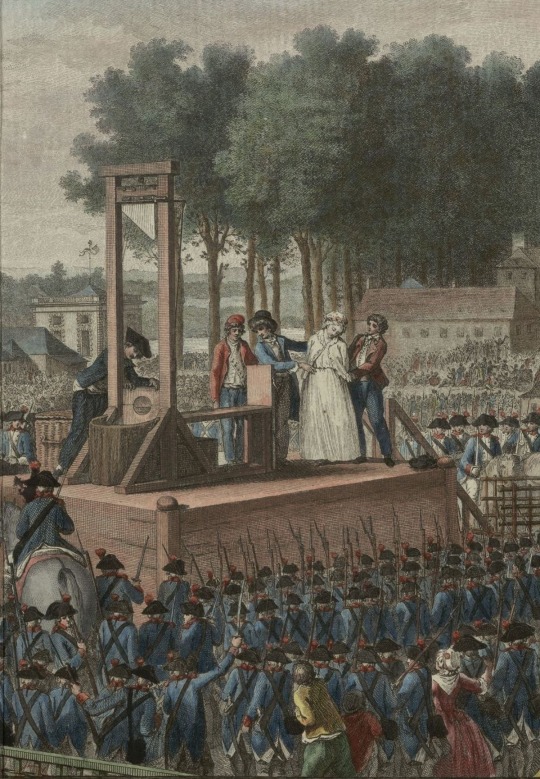
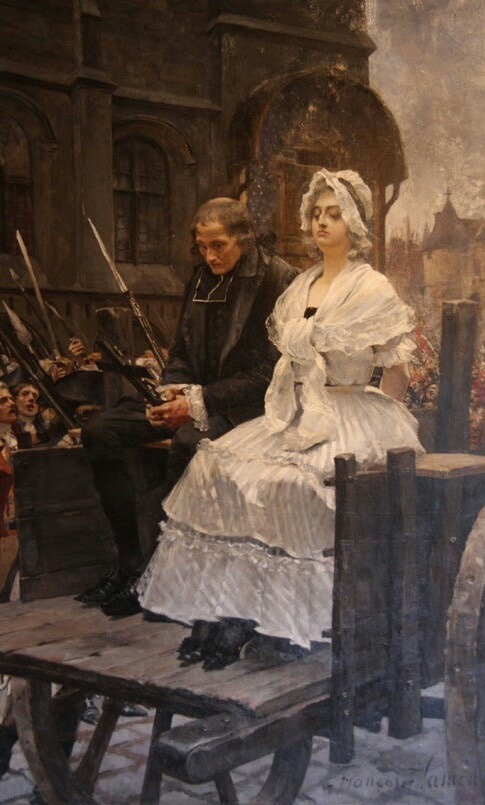
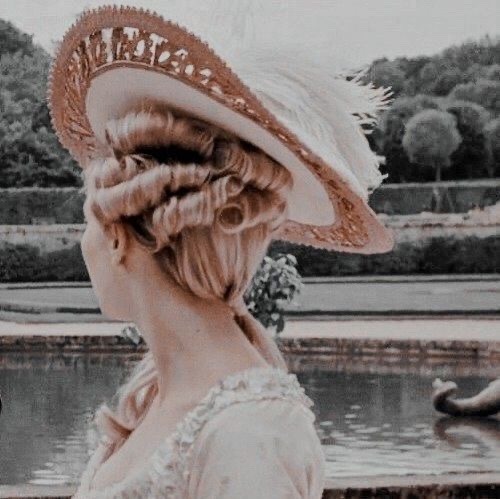
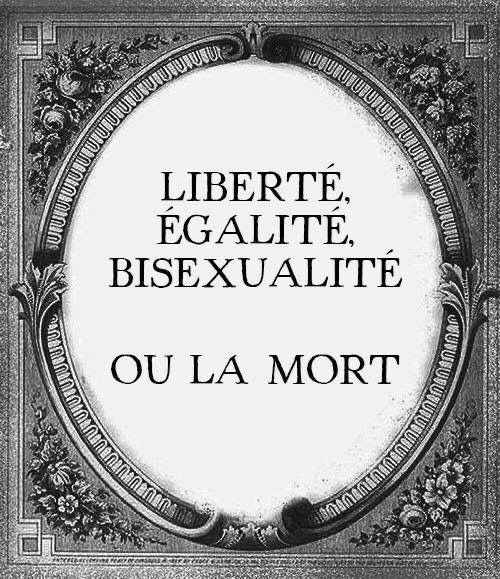
Ah yes, the French revolution the most divisive event in history, my beloved.
Also... Robespierre was a saint compared to feudalism, monarchy and what Louis (and every French monarch before him) was doing to Haiti.
Marie Antoinette’s execution (from a French Revolution pamphlet).
Marie Antoinette on the way to her execution (Francois Fleming 1887).
#meera.musings#wip: liaisons x vampires#french revolution#writing historical fiction#writing horror#maximillian robespierre#marie antoinette#louis xvi#ancien regime#history#know your history#anti colonialism#anti imperialism#anti monarchy#les liaisons dangereuses#dangerous liaisons#18th century#18th century history#historical references
27 notes
·
View notes
Note
Do you have any pieces of advice on how to stop freaking out about making mistakes in my writing? I am currently back at doing research to make sure even my fics here are as accurate as humanly possible… but I’m scared to make a mistake still, or accidentally promote outdated information that has since been proven false.
How do I stop kicking myself in the ass over that?
You quit that over-achieving, irrational, and self-defeating fear of perhaps making historical mistakes by simply writing your story based on what you have already researched. Get it all down, tweak the "writerly parts," as a friend of mine says, and then when you're satisfied with that, find a couple of beta readers with historical knowledge and let them read your draft. They can highlight any potential errors, but you don't necessarily have to agree.
Remember that you're not writing a textbook or a non-fiction tome, so the worry about "outdated" or "superseded" historical interpretation is just silly. Historians argue about these pints all the time and will continue to do so. Your job is to tell a compelling story.
Just stop.
11 notes
·
View notes
Text
OP--turned off reblogs and it is bad tumblr etiquette to try reblog it again, but I am sharing this with two cents cause I have opinions + media criticism credentials + done archivist historian work + my current wip centres largely around this nuance and the nuance of inherent human unreliability. See here, and here. Meaningful citation I am gonna quote a lot… also this is just my opinion having read Das Kapital and worked at a unions museum and being a historical fiction writer + gothic horror writer.

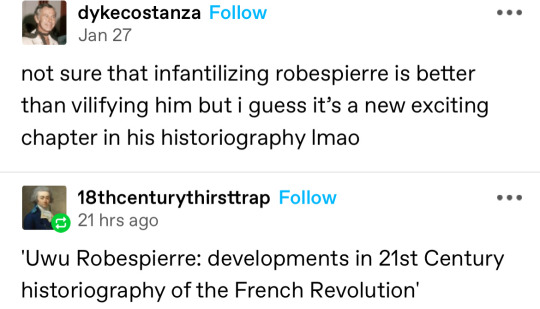


when I say "apologize" for Robespierre I don't mean take away his humanity or complexity. The same applies to Marie Antoinette as much as I don't like at all what she stood for or her irl views, she was still a person, as well Napoleon I Bonaparte (the first 'Liberal' Dictator) are all people, not necessarily 'moral' or 'good' people, and we don't have to erase their humanity to talk about how they were not 'good.'
As competent as Louis XIV nicknamed, Louis the Great (Louis le Grand) or Sun King (le Roi Soleil) for his competence and ability to win France's colonial wars (a thing shockingly-- historians of all political leanings agree upon), could've spared France and all of its citizenry a lot of hurt if he just took away the ancien regimes social powers but left them their titles etc. TLDR: if France became a constitutional monarchy none of the French revolution would've happened.
Robespierre was by no means an "avenging angel" but it is important to keep in mind most of what he fought for was warranted and he was the victim of a posthumous smear campaign.
I cannot possibly reiterate enough times just how messed up the ancien regime was, yeah, not all nobility had power or wealth, like country nobility. But, unless you are the bourgeoise new money, titled and wealthy or court nobility. You along with the 99.9% (who is not the clergy or the second estate) might as well be getting by on scraps, Dangerous Liaisons (the book) touches on this conflict a lot.
Historical fiction is by nature fiction it shouldn't be moralized differently from any other fiction.
The French (and by extension European + American) empires never really 'died' they just rebranded themselves a lot.
#little-desi-historian speaks#french revolution#american revolution#frev#amrev#maximilien robespierre#robespierre#marie antoinette#louis xiv#18th century#18th century history#ancien regime#anti monarchy#anti imperialism#anti capitalism#anti colonialism#history#historical fiction#writing historical fiction#les liaisons dangereuses#dangerous liaisons#media literacy#long post#long post tw#discourse#history lesson#french history#historical references#safe to reblog#safe to rb
8 notes
·
View notes
Text
I love historical fiction but writing it means I have to do a lot of research, and I lot of year calculations for ages. I’m plotting something that takes place in 1977 New York, I had to use an age calculator to figure out what year my main character would have been born.
If anyone has advice on what to look into please tell me. The book will be based around the LGBT communities and culture in New York specifically Harlem, Soviet refugees, interracial relationship and a few other things I haven’t worked out. So far I have three characters and a basic idea for the plot. Any help is appreciated.
#historical fiction#historical research#writing historical fiction#writing#honestly if anyone has advice I need some#lgbt fiction#LGBTQ#lgbtq historical fiction
9 notes
·
View notes
Text
Reaching my truest audacity here (going into NaNoWriMo with a vague outline and a list of important dates)
3 notes
·
View notes
Text
Riddarroman “Järn bränner svagt”
"Järn bränner svagt" är den första delen i serien "Riddaren Troed" och skriven av Edla Lowbrink. Den kom ut den 15 november 2022 och finns att köpa på Vulkanmedia. Den utspelar sig under 1200-talets Sverige och följer fem olika personer. Huvudpersonen är Troed Hjalmarsson, en nyligen dubbad riddare som vill göra gott i världen.
Sammanfattning:
“Jag vill, efter min yttersta makt med liv och gods, beskärma den kristna tron och evangelium, och hålla och värja kyrkan och hennes tjänare vid sin frihet och frälse, stånda mot orätt och styrka frid och rätt och beskärma faderlösa och moderlösa barn, jungfrur, änkor och armt folk och vara trygger och tro mot min konung och mitt rike och rättfärdigt hålla och öva mitt ridderskap. Gud till heders, efter min bästa förmåga, så hjälp mig Gud."
När den unge Troed Hjalmarsson dubbas till riddare av kungen, är han fast besluten att följa riddareden och använda sin makt till att sprida godhet. Med sin nya titel som riddare och borgen han ärvt från sin farbror, är han övertygad om att han kommer att lyckas. Hans öde vävs samman med fyra andra personer i 1200-talets Sverige. Erik Isaksson är en nyligen upphöjd väpnare som längtar efter att få visa sig värdig. De ärbara damerna Ingrid och Eva är döttrar till stormannen Casper Olofsson, men är trots detta inte skyddade mot allt ont i världen. Den ensamstående modern Esmeralda kämpar med att försörja sig själv och sin oäkta son.
I Troeds kamp att göra det rätta, visar det sig dock vara svårare än han trott att veta vem som är den skyldige och oskyldige - onde och gode - och han får lära sig ett och annat om sig själv och den värld han lever i.
Länk till att köpa boken: https://www.vulkanmedia.se/jarn-branner-svagt/
#medeltiden#Medieval Times#knight core#writing a book#swedish books#historical fiction#writing historical fiction
8 notes
·
View notes
Text
I love how Downton Abbey has achieved that perfect balance between fiction and reality, including when self-justifying, that I never can achieve when I'm writing historic fics.
for example, Edith's starting to write in a journal. Well, it is not common for a woman of her era to do so, her parents say. Maybe, she answers, but Lady Sarah Wilson does it! And thus we've got argument, counter argument, historical example, local (in time) colour added, and all that in three minutes or less so it doesn't impede the rest of the episode.
Same with the frequent mentions of Lloyd George, or of any other politician. It's always done exactly like we, today, would mention Biden, Poutine or Jeremy Corbyn in a conversation that isn't about politics. In a passing way.
Anyway, love that balance.
#downton abbey#lloyd george#lady sarah wilson#churchill#writing historical fiction#writing#lady edith crawley#lady violet
9 notes
·
View notes
Note
Hi Noe! Happy FFWF! How do you like to portray the 19th century when you write for your HPHL OCs?
...how about we ignore the fact you sent this a week ago and remembered to answer now and pretend you've just sent it? 😅
Of course, I try to be respectful to the era and how they truly lived (my yt fyp is all about Victorian/Regency stuff) though I do take some liberties. Primrose in the real 1890s Victorian peerage would've been different, but I decided to make a noblewoman OC with some modern concepts so she's easier to understand and relate.
The men are tougher to portray since shows and books normally focus on women – which is not a bad thing!- but makes research a bit more difficult to understand their perspective. I do deep research and tell myself '"ok, what do we blatantly yeet out of the window and what do we keep?" And add some modern terms to understand it better because not everyone here is savvy in history

6 notes
·
View notes
Text
Periodic Writing Update
The third Revolution book, which still has no title, is slowly getting edited. It’s more heavily connected to Where Cannons Roar than that book was to Let it Begin Here, so I have to reference WCR much more often, especially because I drafted Book 3 before I changed some major plot things in WCR, so there are A LOT of sections to rewrite or scrap entirely. That’s besides dealing with all the things I have to fact check with real history. Double fact-checking. Why do I do this to myself?
(It’s from the POV of the wife of the merchant who backs the privateer in Where Cannons Roar - she’s asexual and he’s gay. He was a side character that I got attached to, as happens to all writers, but I wanted to show other forms of queer relationships.)
The fourth book is going to get drafted next month as my main NaNoWriMo project. I’m trying to decide if I can get myself to Fort Stanwix to find out if they have any kind of day-by-day record of the siege, but money is so tight that I’m not sure I’ll get there, even though it’s like 2 hours from where I live. (The pandemic has also somehow made me really hate going places alone? I don’t understand?) My problem is that I don’t have a day-by-day reference from inside the fort of what things were like for the defenders and I kind of need that for my character’s story... we’ll see what I can do. Maybe I can email someone there.
I will also have 2 other “unofficial” NaNoWriMo projects. I’m writing an epic (in scale) fantasy story that I post chapters of weekly on Tapas, since fantasy has always been my first love. The other project is one I was originally just writing for fun, then I realized the worldbuilding came from some deep trauma that I didn’t even know I had? So I’ve given myself permission to absolutely go off the rails with it and use a new pen name to publish each book I feel like writing. Even if no one wants to buy dark supernatural fantasy at least it’s getting me through some stuff.
So that’s your periodic update for now. I’ll definitely be letting everyone know how NaNoWriMo is going. Also shameless plug for my Patreon which I update weekly with behind-the-writing stuff okay I’m done.
1 note
·
View note
Text
One of my biggest nitpicks in fiction concerns the feeding of babies. Mothers dying during/shortly after childbirth or the baby being separated form the mother shortly after birth is pretty common in fiction. It is/was also common enough in real life, which is why I think a lot of writers/readers don't think too hard about this. however. Historically, the only reason the vast majority of babies survived being separated from their mother was because there was at least one other woman around to breastfeed them. Before modern formula, yes, people did use other substitutes, but they were rarely, if ever, nutritionally sufficient.
Newborns can't eat adult food. They can't really survive on animal milk. If your story takes place in a world before/without formula, a baby separated from its mother is going to either be nursed by someone else, or starve.
It doesn't have to be a huge plot point, but idk at least don't explicitly describe the situation as excluding the possibility of a wetnurse. "The father or the great grandmother or the neighbor man or the older sibling took and raised the baby completely alone in a cave for a year." Nope. That baby is dead I'm sorry. "The baby was kidnapped shortly after birth by a wizard and hidden away in a secret tower" um quick question was the wizard lactating? "The mother refused to see or touch her child after birth so the baby was left to the care of the ailing grandfather" the grandfather who made the necessary arrangements with women in the neighborhood, right? right? OR THAT GREAT OFFENDER "A newborn baby was left on the doorstep and they brought it in and took care of it no issues" What Are You Going to Feed That Baby. Hello?
Like. It's not impossible, but arrangements are going to have to be made. There are some logistics.
#idk what to tag this#worldbuilding#writing fiction#historical fiction#fantasy#a real-life example: my dad (a pediatrician) was once entrusted with the care of a baby who was born with a rare condition#this was in a place without great hospital/medical access and anyway they were going to fly the baby over#and he specifically asked them to bring the mother and baby#they show up with baby and...the baby's uncle#and he was like. y'all. do you think I asked for the mom to come just for fun??? We don't have formula here. what is the baby going to eat?
37K notes
·
View notes
Text
Writing historical fiction is...a lot right now. So much research...
0 notes
Text
Introduction to writeblr
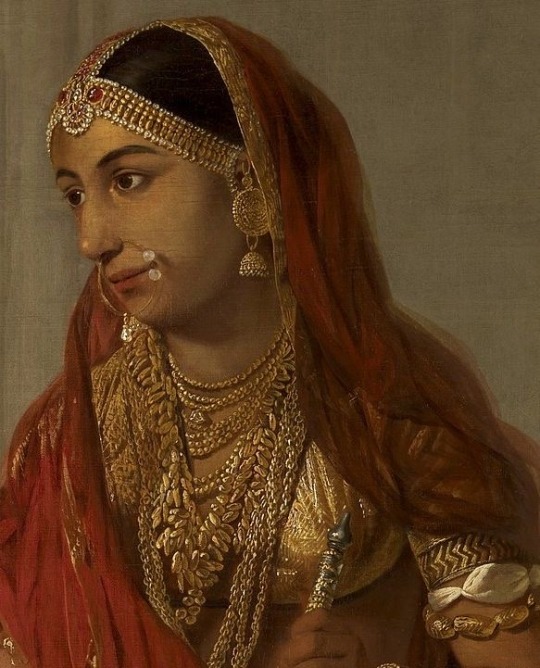
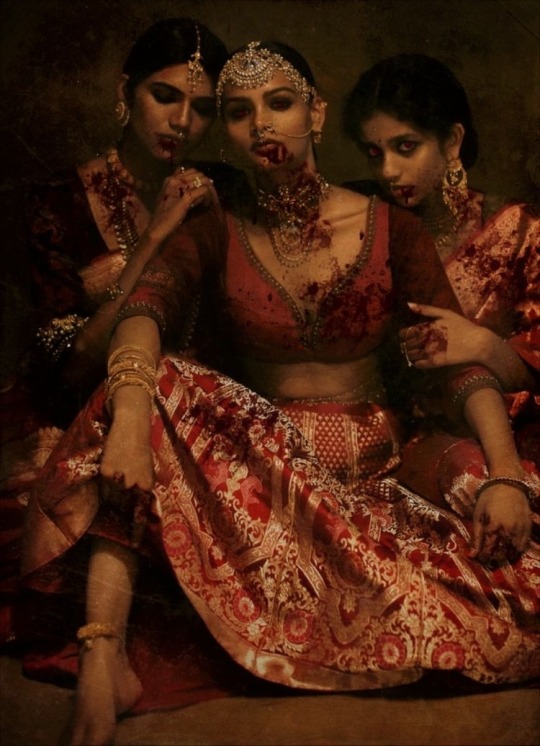
Hello I am Meera S (they/them), I am a speculative fiction writer, writer of historical fiction and more, all of it is queer centric and with person of global majority (colour) angle. Please interact with this post and I shall add you back to the best of my ability!
about my writing
I’ve been writing and fan fictioning since I was 10. I started my first novel a little over a year ago, I am editing it in a month. I gravitate towards the gothic and historical but I am not gonna limit myself to that. I also write short stories, fic and poetry.
1. Vampires, witches, werewolves, ghosts, and more, oh my!: I love me some monsters and allegories that are multilayered, just not zombies.
2. Fantasy and gothic, I write about the human through the inhuman, Anne Rice once said vampire was the most poignant allegory for outcast and other-ness.
3. The historical. You have to know the past to understand the present and future. Ancient History through 1920s and all of South Asian history and mythology.
4. Diversity: I am a queer south asian person but I do earnestly try for informed diverse world views that are nuanced and sympathetic even if not “moral” because vampire, etc.
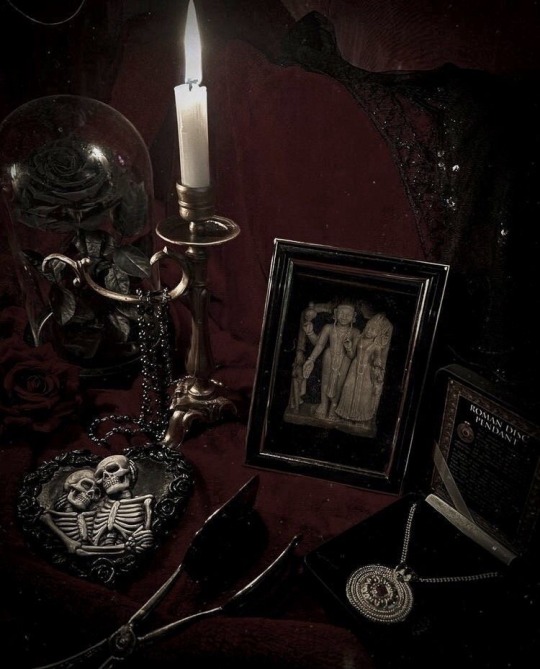
about me
read here.
fandoms: read here. go here for fandom stuff. Here for history. Here for fic. Role-play masterlist.
Influences: Anne Rice, Oscar Wilde, Octavia Butler, Indu Sundaresan, @writingvampires, @elisaintime, Silvia Moreno Garcia and @saintmachina.
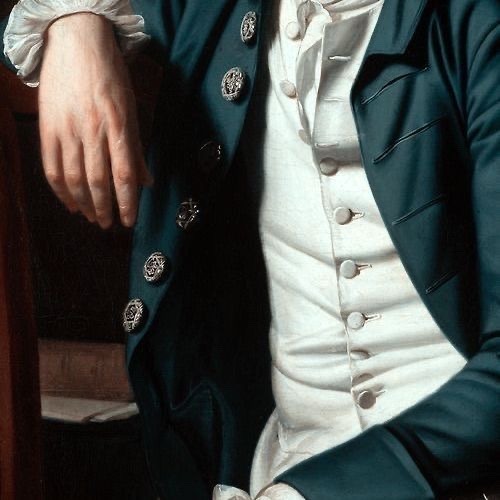
what i'm looking for
1. Friends and cool people.
2. eventual beta readers/editors.
3. Other writers.
4. people who know people etc.
genres i read
I gravitate towards the gothic and historical, but anything well written and I think worthwhile.
Just finished: Good Omens, Lasher by Anne Rice, catching up with Dracula daily . also following @re-dracula.
Immediately going to read: Taltos by Anne Rice, The Vampire Lestat by Anne Rice, Common Sense by Thomas Paine, and the memoir of Benjamin Tallmadge (the memoir is only 75 pages long so..)
WIPS
Presently unamed, editing in a month: What if Sibyl Vane was too haunt Dorian Gray? Heavily inspired by Wilde’s poetry, Emilie Autumn, steampunk, the allegory of ghosts as the inescapable past popularized by Charles Dickens in A Christmas Carol. As well as the folklore of banshees, avenging angels & La Llorona. More here. Playlist.

Pending: novella: les liaisons dangereuses x vampires. Playlist.

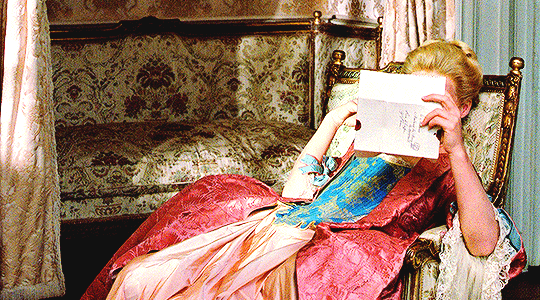
Pleasure to make your acquaintance!
#meerawrites#writeblr#safe to reblog#writeblr community#writers of tumblr#introducing myself#introduction#introduction post#writeblr intro#bisexual#queer#lgbtq+#historical fiction#writer community#writerblr#writers on tumblr#gothic#gothic horror#desi tumblr#desiblr#desi tag#desi lgbt#desi queer#writing horror#writing historical fiction#my wips#long post#long post tw
97 notes
·
View notes
Text
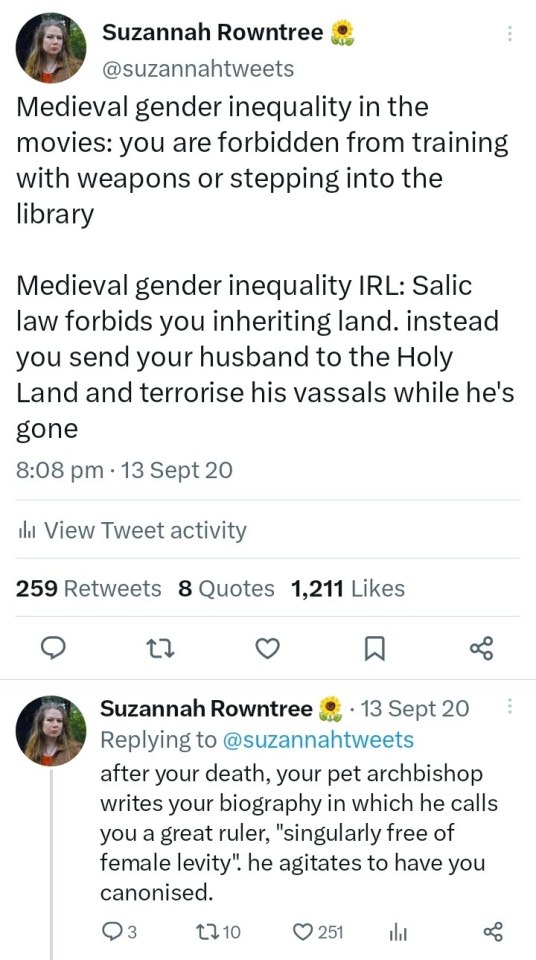
all RIGHT:
Why You're Writing Medieval (and Medieval-Coded) Women Wrong: A RANT
(Or, For the Love of God, People, Stop Pretending Victorian Style Gender Roles Applied to All of History)
This is a problem I see alllll over the place - I'll be reading a medieval-coded book and the women will be told they aren't allowed to fight or learn or work, that they are only supposed to get married, keep house and have babies, &c &c.
If I point this out ppl will be like "yes but there was misogyny back then! women were treated terribly!" and OK. Stop right there.
By & large, what we as a culture think of as misogyny & patriarchy is the expression prevalent in Victorian times - not medieval. (And NO, this is not me blaming Victorians for their theme park version of "medieval history". This is me blaming 21st century people for being ignorant & refusing to do their homework).
Yes, there was misogyny in medieval times, but 1) in many ways it was actually markedly less severe than Victorian misogyny, tyvm - and 2) it was of a quite different type. (Disclaimer: I am speaking specifically of Frankish, Western European medieval women rather than those in other parts of the world. This applies to a lesser extent in Byzantium and I am still learning about women in the medieval Islamic world.)
So, here are the 2 vital things to remember about women when writing medieval or medieval-coded societies
FIRST. Where in Victorian times the primary axes of prejudice were gender and race - so that a male labourer had more rights than a female of the higher classes, and a middle class white man would be treated with more respect than an African or Indian dignitary - In medieval times, the primary axis of prejudice was, overwhelmingly, class. Thus, Frankish crusader knights arguably felt more solidarity with their Muslim opponents of knightly status, than they did their own peasants. Faith and age were also medieval axes of prejudice - children and young people were exploited ruthlessly, sent into war or marriage at 15 (boys) or 12 (girls). Gender was less important.
What this meant was that a medieval woman could expect - indeed demand - to be treated more or less the same way the men of her class were. Where no ancient legal obstacle existed, such as Salic law, a king's daughter could and did expect to rule, even after marriage.
Women of the knightly class could & did arm & fight - something that required a MASSIVE outlay of money, which was obviously at their discretion & disposal. See: Sichelgaita, Isabel de Conches, the unnamed women fighting in armour as knights during the Third Crusade, as recorded by Muslim chroniclers.
Tolkien's Eowyn is a great example of this medieval attitude to class trumping race: complaining that she's being told not to fight, she stresses her class: "I am of the house of Eorl & not a serving woman". She claims her rights, not as a woman, but as a member of the warrior class and the ruling family. Similarly in Renaissance Venice a doge protested the practice which saw 80% of noble women locked into convents for life: if these had been men they would have been "born to command & govern the world". Their class ought to have exempted them from discrimination on the basis of sex.
So, tip #1 for writing medieval women: remember that their class always outweighed their gender. They might be subordinate to the men within their own class, but not to those below.
SECOND. Whereas Victorians saw women's highest calling as marriage & children - the "angel in the house" ennobling & improving their men on a spiritual but rarely practical level - Medievals by contrast prized virginity/celibacy above marriage, seeing it as a way for women to transcend their sex. Often as nuns, saints, mystics; sometimes as warriors, queens, & ladies; always as businesswomen & merchants, women could & did forge their own paths in life
When Elizabeth I claimed to have "the heart & stomach of a king" & adopted the persona of the virgin queen, this was the norm she appealed to. Women could do things; they just had to prove they were Not Like Other Girls. By Elizabeth's time things were already changing: it was the Reformation that switched the ideal to marriage, & the Enlightenment that divorced femininity from reason, aggression & public life.
For more on this topic, read Katherine Hager's article "Endowed With Manly Courage: Medieval Perceptions of Women in Combat" on women who transcended gender to occupy a liminal space as warrior/virgin/saint.
So, tip #2: remember that for medieval women, wife and mother wasn't the ideal, virgin saint was the ideal. By proving yourself "not like other girls" you could gain significant autonomy & freedom.
Finally a bonus tip: if writing about medieval women, be sure to read writing on women's issues from the time so as to understand the terms in which these women spoke about & defended their ambitions. Start with Christine de Pisan.
I learned all this doing the reading for WATCHERS OF OUTREMER, my series of historical fantasy novels set in the medieval crusader states, which were dominated by strong medieval women! Book 5, THE HOUSE OF MOURNING (forthcoming 2023) will focus, to a greater extent than any other novel I've ever yet read or written, on the experience of women during the crusades - as warriors, captives, and political leaders. I can't wait to share it with you all!
#watchers of outremer#medieval history#the lady of kingdoms#the house of mourning#writing#writing fantasy#female characters#medieval women#eowyn#the lord of the rings#lotr#history#historical fiction#fantasy#writing tip#writing advice
29K notes
·
View notes
Note
Hi I was wondering if you know of any good resources to get good vintage names that aren’t typical and boring (Fred, Edward, Alfred etc)?
Some of the names in the Santa letters are certainly peculiar and it made me wonder what kind of names those “vintage baby names” lists are leaving out 😜
Thanks! And happy new year 🎊
One place to get a good general overview of what names were like in a certain era is the Social Security Administration's lists of popular names that go back to the 1880s. The further down the lists you go the less common they get. However these are still all names that had at least a few hundred occurrences, so you're not going to have any Gloyds etc..
I personally always try to find names from primary sources (newspapers, census, vital records, etc.) as you're more likely to come across unusual names that don't make the top 200 lists.
Also keep in mind that name popularity varied greatly by location. Just because there were a bunch of Juanitas in Tulsa in 1930 doesn't mean there were that many in Boston.
Honestly if anyone is working on a specific project and needs names from a certain location/era (i.e. you're writing a novel that takes place in London in 1627) feel free to message me and I'd be happy to work with you to compile a list from primary sources. I love this stuff and will use any valid excuse to spend an evening digging through 17th century baptismal records.
#if you buy me a coffee I might even make you a simple custom name generator#I do this for myself all the time because I'm a party person who really likes spreadsheets#names#history#historical fiction#writing resources#asks#@sir-sleepalot#writing reference#character names
2K notes
·
View notes
Text
It wouldn’t be historically accurate for my story to include BIPOC!
This is an argument often made about European-style fantasy media like Game of Thrones, Lord of the Rings, and Disney’s Frozen. Audiences, often white, assume that due to the majority-white setting, adding any visible number of BIPOC to the story would be unrealistic.
What these critics fail to realize is that BIPOC do in fact live, and have lived, in these settings, and records of BIPOC presence in places assumed to be majority-white have been buried, written out, or not taught due to white supremacist and/or colonial bias in the field of history. There are historical European settings that were far more diverse than is often portrayed. Consider:
The Moorish Empire exerted an extensive influence over life and culture in Southern Europe from Spain from 711 to 1492
The Ottomans were heavily involved in European affairs up until the treaty of Karlowitz in 1699, but still considered a part of Europe even through the 19th century
The sheer size of the Roman Empire ensured the continued movement of people from various backgrounds within the Mediterranean well until the end of the Byzantine Empire.
“Historical accuracy” should not be used as an excuse for media to be exclusively white in its casting. While there are places which are or were predominantly white, there will always be factors like global trade and immigration that bring multiculturalism to their doors.
And even if the presence of a certain demographic is unrealistic for a certain setting? Consider that we’ve accepted far worse inaccuracies in historical fiction in the name of artistic license. Consider that our understanding of human history is, and will always be, incomplete.
Further Reading:
Historically Diverse London, “Historical Accuracy,” and Creator Accountability
Making a Black Pride and Prejudice Resonate
---
This Q&A is an excerpt from our General FAQ for Newcomers, which can be found in our new Masterpost of rules and FAQs. If you're new to Writing With Color and/or want more writing resources, check it out!
-Writing With Color
#writing with color#writeblr#representation#poc representation#history#historical fiction#historical accuracy#writing advice#writing tips#writers on tumblr#diverse books#diversity matters#faq
3K notes
·
View notes